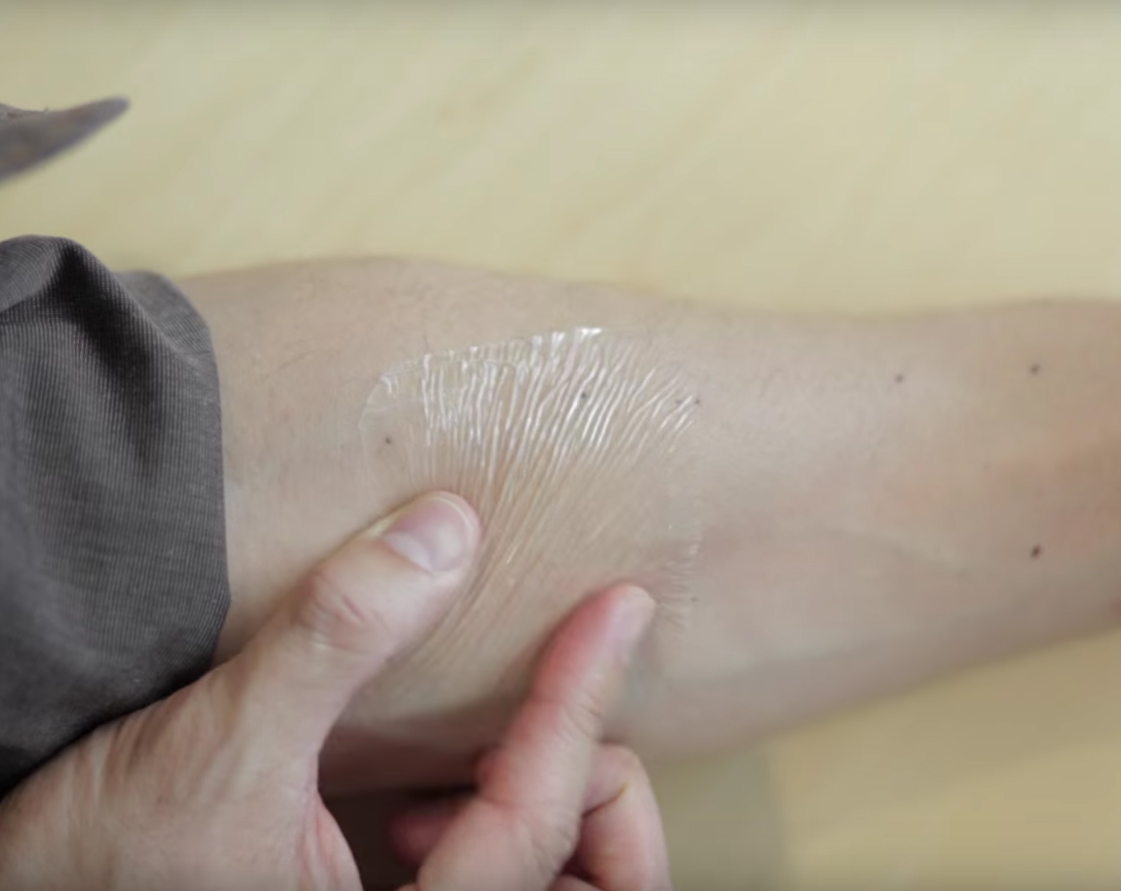Scientists created a crazy new 'second skin' that covers up wrinkles, treats skin conditions

A free daily email with the biggest news stories of the day – and the best features from TheWeek.com
You are now subscribed
Your newsletter sign-up was successful
Scientists say they've developed an invisible elastic film that, when applied on top of real skin, works as a "second skin." According to the team from Harvard Medical School and the Massachusetts Institute of Technology, the "skin" functions similarly to real skin, serving as a breathable, protective layer that locks in moisture and temporarily helps increase skin elasticity. The "skin" can last for more than a day without causing irritation, or being washed away by rain or sweat, scientists say.
Right now, it's mainly being tested for cosmetic uses, such as covering up wrinkles and hiding under-eye bags. Someday, scientists hope the film can be used to deliver medication and sun protection. They expect it can be used to treat skin conditions like eczema and psoriasis by soothing dry patches.
Good as it may sound, the product is still far from hitting the market. The report released Monday just describes the first test of the film, and researchers say they don't yet know when they'll have enough data to submit the product to the Food and Drug Administration for marketing approval.
The Week
Escape your echo chamber. Get the facts behind the news, plus analysis from multiple perspectives.

Sign up for The Week's Free Newsletters
From our morning news briefing to a weekly Good News Newsletter, get the best of The Week delivered directly to your inbox.
From our morning news briefing to a weekly Good News Newsletter, get the best of The Week delivered directly to your inbox.
And, as Murad Alam, a professor of dermatology at Northwestern University who was not associated with the study, told The New York Times, first tests don't guarantee anything. "This is a first step, and all these applications will require further work," Alam said. Still, he's very impressed with the study. If the testing is successful, he says, "I think it will be very popular."
A free daily email with the biggest news stories of the day – and the best features from TheWeek.com
-
 The Olympic timekeepers keeping the Games on track
The Olympic timekeepers keeping the Games on trackUnder the Radar Swiss watchmaking giant Omega has been at the finish line of every Olympic Games for nearly 100 years
-
 Will increasing tensions with Iran boil over into war?
Will increasing tensions with Iran boil over into war?Today’s Big Question President Donald Trump has recently been threatening the country
-
 Corruption: The spy sheikh and the president
Corruption: The spy sheikh and the presidentFeature Trump is at the center of another scandal
-
 Rubio boosts Orbán ahead of Hungary election
Rubio boosts Orbán ahead of Hungary electionSpeed Read Far-right nationalist Prime Minister Viktor Orbán is facing a tough re-election fight after many years in power
-
 Key Bangladesh election returns old guard to power
Key Bangladesh election returns old guard to powerSpeed Read The Bangladesh Nationalist Party claimed a decisive victory
-
 Epstein files topple law CEO, roil UK government
Epstein files topple law CEO, roil UK governmentSpeed Read Peter Mandelson, Britain’s former ambassador to the US, is caught up in the scandal
-
 Iran and US prepare to meet after skirmishes
Iran and US prepare to meet after skirmishesSpeed Read The incident comes amid heightened tensions in the Middle East
-
 EU and India clinch trade pact amid US tariff war
EU and India clinch trade pact amid US tariff warSpeed Read The agreement will slash tariffs on most goods over the next decade
-
 Israel retrieves final hostage’s body from Gaza
Israel retrieves final hostage’s body from GazaSpeed Read The 24-year-old police officer was killed during the initial Hamas attack
-
 China’s Xi targets top general in growing purge
China’s Xi targets top general in growing purgeSpeed Read Zhang Youxia is being investigated over ‘grave violations’ of the law
-
 Panama and Canada are negotiating over a crucial copper mine
Panama and Canada are negotiating over a crucial copper mineIn the Spotlight Panama is set to make a final decision on the mine this summer